With skills in Information Technology (IT), you can play a big part in the success of industries that not only drive the modern world, but can also completely change how it works.
Our programmes have been developed after working with schools, businesses and the community to include all the components to ensure your success in this field. Our strong industry relationships mean you keep up with the latest advances and techniques that are in demand in the real world.
- Our certificate and diploma qualifications will provide you with general IT skills.
- Our bachelor of digital technologies will further develop and focus your interests and experience into a more specific area. Choose to specialise in networking, or software and web development.
See why more people choose Digital Technologies at MIT
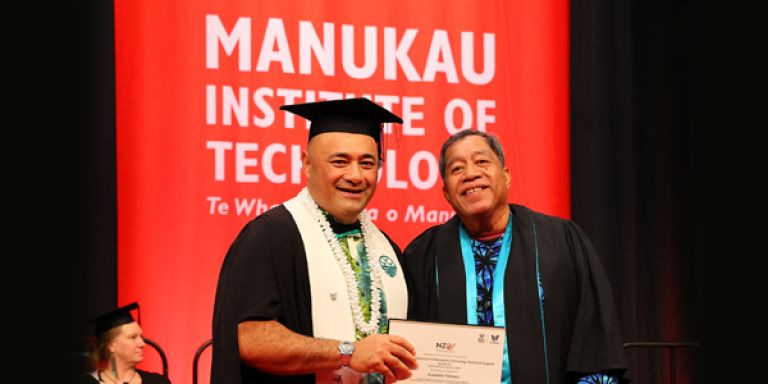
“Come as you are – you’ll go out ready to build the communities.”

“Prior to studying at MIT I was working for more than 30 years. I had a passion for information technology back then – and it’s still one of my favourite subjects. I started studying at MIT in the year 2000, and did not complete. I decided I should finish my IT qualification at the school I first studied when I migrated to New Zealand. I started when I was 64-years-old and graduated at 66.
I enjoyed the company of my fellow students and lecturers at MIT – a multi-ethnicity and multi-cultural institution. MIT is people centered. The lecturers were helpful and tailored their courses to the needs of the students and the industries. Most of our IT lecturers had previous work experience, so theory and practical are taught in tandem. The online sessions for me personally were a blessing in disguise.
I’m now working in remote data collection with a consultancy business in the climate change and weather sector.
My advice is that whether you are school leavers or have plenty of experience, MIT has course structures to cater for all levels of education.
Come as you are – you’ll go out ready to build the communities.”
Ausetalia Titimaea
MIT graduate

MIT is the quality choice. Study digital technologies and graduate work-ready.

“Everyone I graduated with got jobs quickly.”

“I chose to study at MIT after attending an open day and meeting the lecturers who I felt could help me get the right start in my career. It was a great choice. During my studies for a Bachelor of Information Systems, I gained expert knowledge, tools and valuable industry experience through an internship. I’m dyslexic but the open learning style at MIT allowed me to overcome any potential disadvantage from this.
Everyone I graduated with got jobs quickly, and there are so many opportunities with ICT in New Zealand and overseas. I’m working as a web developer, which I love. Thanks to what I learnt at MIT I can quickly pick up new technologies and techniques, and use them effectively in my job.
My employer has commented on the strong industry knowledge I gained at MIT and the new ideas I continue to bring to the company.”
Louis Rogers
MIT graduate

“My qualification is recognised everywhere in the world.”

“I chose to study at MIT because of its strong academic reputation. The graduate diploma allowed me to develop industry-specific skills and the professors are world-class.
The training I gained in the IT industry set me up for a career in almost any sector I could imagine including financial services, education, transportation, manufacturing, oil and gas, government, hospitality and healthcare. Graduates with ICT and networking skills are in short supply worldwide.
Since graduating, I have got a job as a service desk engineer, providing technical services to the company and customers.
My qualification is recognised anywhere in the world. MIT has given me an excellent foundation to be an immediate contributor to the IT field and for achieving my goal of becoming a managed services engineer.”
Navdeep Kaur
MIT graduate

“I want to aim for my bachelors and try to make it in life.”

“After leaving high school I was a little lost but I enjoyed playing on the computer as a hobby, so I decided I would give digital technologies a try. The course teaches us a lot about web design and coding. It is difficult but also really fun.
After studying you can go and work in IT or you can use your skills to build your own websites, so it will help if you want to start a career in that.
What I enjoy most about MIT is the opportunity to make new friends. It’s a fun and outgoing atmosphere here. You learn new things every day. I want to aim for my bachelors and try to make it in life.”
Jorden Souriyavong
MIT student
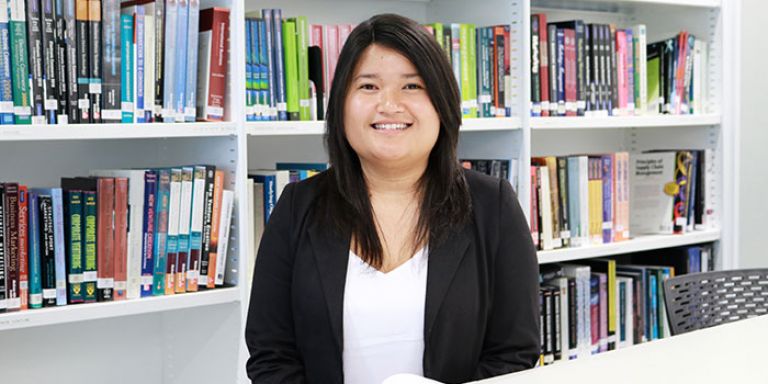
“There are so many success stories from MIT.”

“There are so many success stories from MIT – I knew right away this was the place to start my future.
I’ve always been interested in computers and wanted to know more, so taking the next step to pursue this as a career was a natural choice. I chose to study a Bachelor of ICT to learn the fundamentals and am now qualified to go straight into the industry. There are so many job opportunities open to me, which is really exciting.
As a female, studying in a male-dominated sector was a little intimidating at first, but the support of the people around me, including the lecturers, gave me the confidence to believe in myself.
My advice to anyone considering MIT would be to not let anything stand in the way of pursuing your dreams.”
Sam Khiev
MIT graduate

“It provides you with so many practical skills, life skills and even social skills.”

“I chose this subject because it’s always been a passion of mine. Since I was a 4-year old I was playing with computers. This just felt like the right place to come.
We are studying a range of exciting courses like technical support, computer architecture, and software development. We are learning how to code, create websites, assemble and disassemble computers. If you are ever interested in working in the software or hardware side of things then computer development is for you, that’s what you want to do. It provides you with so many practical skills, life skills, and even social skills.
My goal is to land a safe and steady job that will allow me to provide for myself and other people.”
Daniel Owen tongia-Lennon
MIT student
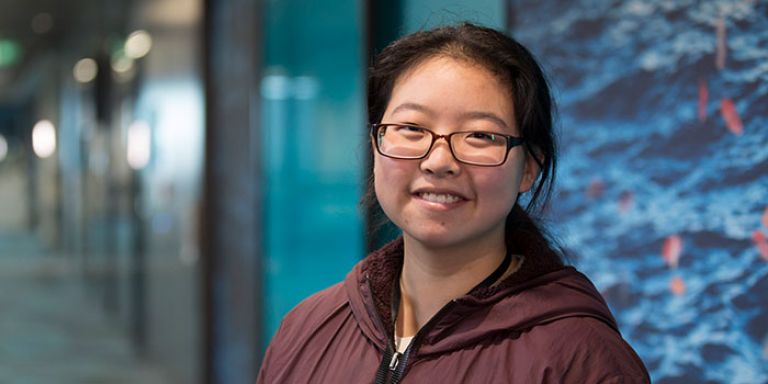
“My advice is to come along because it’s a great place to be.”

“I am an international student. I study digital technologies, majoring in software development.
My husband is an IT guy, that is where my interest in the subject started from. I think it’s pretty cool. MIT is a great place to be. I have been at other institutes and MIT is the most practical. IT is a really interesting subject because you really have to understand the logic before you can further progress.
I want to further myself and see if I can go further in this area because I really enjoy it. My advice is to come along because it’s a great place to be.”
Guiyu Fei (Tracy)
MIT student
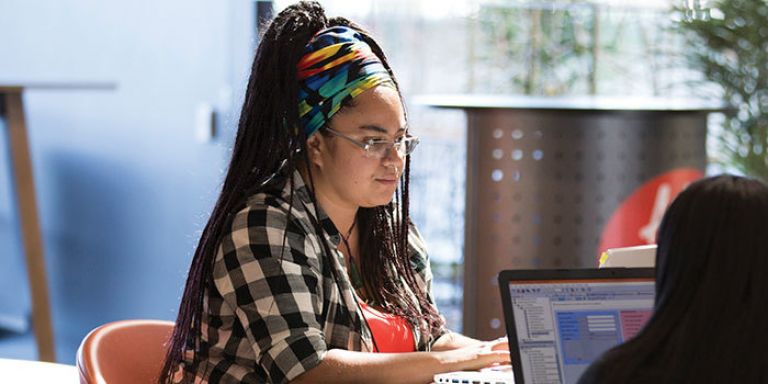
“MIT is home and family who will always have a piece of my heart.”

“Through the years of studying at MIT, I never thought I’d find a place I could really call home for me after studying elsewhere. Through all the ups and downs, I’ve loved the connections and experiences I’ve had with both my fellow graduates and lecturers.
It is many thanks to MIT that I’ve seen myself grow into a person that I hope MIT can be proud of. MIT is home and family who will always have a piece of my heart.”
Fran Frandi
MIT graduate

“I graduated from MIT as the highest paid software and web development graduate.”

“I graduated MIT as the highest paid software and web development graduate, all thanks to MIT for providing me with the soft and technical skills, practical experience and valuable knowledge that I wouldn’t get anywhere else.
MIT is by far the most unique educational facility I have experienced to date, that is because MIT has a different learning approach that is very engaging and practical. I fell in love with MIT because of how the courses were delivered. The lecturers were highly engaged with students one-on-one and there was so much practical hands-on experience that wasn’t available elsewhere.”
Sabrina Papps
MIT graduate
Get a real-life industry experience at MIT
“I gained the soft and technical skills that employers want. No other institution’s quite the same as MIT.”
When studying digital technologies at level 7 (or higher) with MIT you’ll learn to apply your academic skills and knowledge as you complete a real-life industry placement in the workplace. Find out how Sabrina’s industry experience and bachelor qualification helped her secure a job as a business analysist with Westpac.

“MIT has a great reputation for being more than just a place of education.”

“Studying technology can open up a number of endless options and career paths.
Every company needs tech experts that help keep things running – giving you the opportunity to shape a future you can be proud of.
In my first year of studying at MIT, my lecturer approached me and said… “I really want you to do well in this course. There are hardly any females in technology, even more so, Pacific Islanders in ‘networking’ and I’m rooting for you all the way”. In this moment I knew that what I was doing would hopefully encourage others to follow a career in tech and one day I would help pave the way for other Pasifika females who are looking at getting into technology.
A month after I graduated from MIT, I was able to secure a job as a Network Services Coordinator at one of New Zealand’s top tech companies, Datacom. I feel so grateful and blessed to be given an opportunity to put to use all that I have learnt through my studies at MIT and to be working at a company I never thought would be a possibility as a graduate, but more so as a Pacific Islander.
No matter what stage in your life journey you are at, MIT is a great choice for you to begin or continue with your education. Whether you are straight out of high school or looking for a fresh new start, MIT will have many options to choose from. Courses are delivered in a way that keeps you engaged, connected and involved with your learning and as a bonus, you get to meet great people along the way.
Education is key to success, and MIT has played a pivotal part as the foundation of what I have accomplished so far. I have found myself no longer holding back but knowing I have the potential and mindset to achieve and follow my dreams.
MIT has a unique and diverse culture that makes you feel accepted and a sense of belonging. They are known for helping to build, mould and prepare students with the experience, knowledge, skills and confidence to make the world a better place. So, I knew this would be the right place to begin this part of my journey.
For my industry project I was selected to go to an organisation called Cianaa Technologies, as a Cyber Security Awareness Specialist.
While there, I was asked to help pilot their awareness program for payment card industry data security standards (PCI DSS). They wanted to be able to educate and teach existing and potential customers of the dangers and risks of not protecting and safeguarding credit card information.
Together, my partner and I were to create a series of videos, using a software design tool that would be simple enough for clients and customers to understand the vulnerabilities and risks of credit card data if not secured properly and if it got into the wrong hands. We outlined the different types of security breaches, as well as provided resolutions on how to mitigate risks and threats.
Cianaa Technologies were happy with the results of the industry project and wanted the work to continue well after the assignment had finished. With an A+ as a result of months of hard work, it was all worth the long hours and sleepless nights.”
Jacinta Fue
MIT graduate

“MIT is one of the best and highly reputed institutes in New Zealand.”

“Cyber attacks are on rise and there has never been a better time to start a career in cyber security.
Cyber security is not simply about protecting the internet, it is more of a lifestyle. Here at MIT students are taught how to incorporate cyber security practices into daily life.
MIT is one of the best and highly reputed institutes in New Zealand that offer specialised course in cyber security. The applied technology course at MIT is designed in such a way that it prepares students for real-world jobs. More stress is given on learning by doing.
Since graduating, I have landed a job as cyber security analyst at one of the largest companies in New Zealand where I can see a huge potential for my career growth in next five years. All this has been possible due to meticulously drafted course material and highly skilled teaching staff at MIT.”
Bhupinder (Bobby) Singh
MIT graduate

“MIT has a lot of options, and you can choose what you prefer.”

“My time at MIT has been great. I met so many friends and had so many experiences. I was part of the student council, so we got to work with MIT staff and see the great work that they do, and how much they care about the students.
The advice I would give to people looking to study would be just go for it. Give it a go. MIT has a lot of options, and you can choose what you prefer.”
Mario Aguirre Lopez
MIT graduate
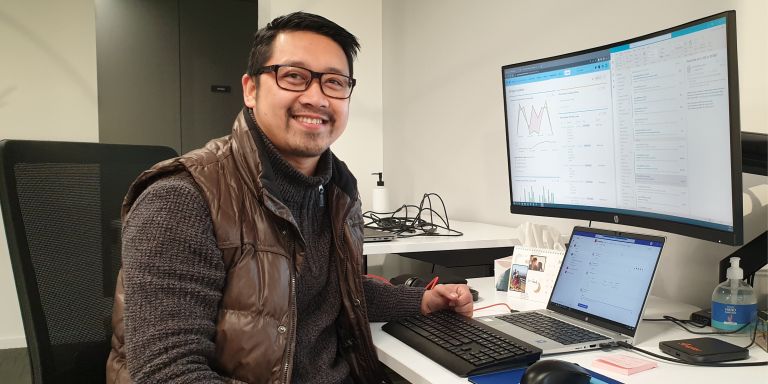
“My qualification gave me a chance to enter the IT industry.”

“I was working as a contact centre agent but wanted to learn more about technology and gain a high-quality education.
The campus is very nice, and I preferred studying on campus and interacting with classmates and the lecturers. The lecturers were very supportive, and I enjoyed how they delivered the knowledge – they really helped me to understand the course and gave me very informative answers to my questions.
My qualification helped me a lot and gave me a chance to enter the IT industry.”
Darwin Dula
MIT graduate

“I chose MIT because of the diversity, there’s a lot of different cultures here.”

“My experience at MIT was really good and I enjoyed it. My teachers were helpful and it’s always good to go to them and ask them questions. I chose MIT because of the diversity, there’s a lot of different cultures here and you meet heaps of new people.
My favorite part of coming to MIT is just making new friends and meeting new people, especially in the field that you’re studying.”
Sitani Moa
MIT graduate

“Almost everything I learnt at MIT is transferred to my work today.”

“I left school when I was 15 without my NCEA level 1, but I always knew I wanted to do something in tech as I loved video games and was always on the computer. My experience at MIT was like nothing I’ve experienced before and completely different to how high school was for me. I met all these cool new people and teachers.
In high school I didn’t get along with a lot of people, but at MIT it’s a lot easier to talk to other students and even lecturers. I spent a lot of time on campus and made some really good friends.
Currently I’m employed working in my dream field. Almost everything I learnt at MIT is transferred to my work today. I actually use those skills every day.
What I enjoyed most about MIT was the lecturers. They have a star-studded line up of lecturers and I’ve only got good things to say. They’re very flexible and really encourage and push you to improve your skills. I haven’t had that experience anywhere else.”
Levi Marsh-Nichols
MIT graduate

“My qualification has unlocked a multitude of opportunities.”

“I specifically chose MIT due to its outstanding reputation, which had been consistently praised by many. Throughout my time at MIT, I developed a strong affinity for the knowledgeable professors and forged meaningful connections with fellow students. The hands-on approach to learning at MIT was particularly enjoyable, as it made each day exciting and engaging. I hold my professors in high regard, as they played a pivotal role in guiding me through my studies.
At MIT, I acquired a solid foundation in IT fundamentals, as well as the technical skills required to navigate diverse IT scenarios. The industry placement component provided invaluable practical experience, allowing me to put theoretical knowledge into real-world practice. This immersive experience not only motivated me but also fostered a genuine interest in the field, equipping me with troubleshooting abilities and a deeper understanding of workplace challenges.
Thanks to my degree from MIT, I was able to secure a position as a Graduate Consultant, where I am responsible for providing support to clients. The comprehensive education and practical training I received at MIT have proven instrumental in my current role, enabling me to effectively address and resolve issues within my work environment.”
Nehaal Prasad
MIT graduate
See why more people choose Digital Technologies at MIT

“Come as you are – you’ll go out ready to build the communities.”

“Prior to studying at MIT I was working for more than 30 years. I had a passion for information technology back then – and it’s still one of my favourite subjects. I started studying at MIT in the year 2000, and did not complete. I decided I should finish my IT qualification at the school I first studied when I migrated to New Zealand. I started when I was 64-years-old and graduated at 66.
I enjoyed the company of my fellow students and lecturers at MIT – a multi-ethnicity and multi-cultural institution. MIT is people centered. The lecturers were helpful and tailored their courses to the needs of the students and the industries. Most of our IT lecturers had previous work experience, so theory and practical are taught in tandem. The online sessions for me personally were a blessing in disguise.
I’m now working in remote data collection with a consultancy business in the climate change and weather sector.
My advice is that whether you are school leavers or have plenty of experience, MIT has course structures to cater for all levels of education.
Come as you are – you’ll go out ready to build the communities.”
Ausetalia Titimaea
MIT graduate

MIT is the quality choice. Study digital technologies and graduate work-ready.

“Everyone I graduated with got jobs quickly.”

“I chose to study at MIT after attending an open day and meeting the lecturers who I felt could help me get the right start in my career. It was a great choice. During my studies for a Bachelor of Information Systems, I gained expert knowledge, tools and valuable industry experience through an internship. I’m dyslexic but the open learning style at MIT allowed me to overcome any potential disadvantage from this.
Everyone I graduated with got jobs quickly, and there are so many opportunities with ICT in New Zealand and overseas. I’m working as a web developer, which I love. Thanks to what I learnt at MIT I can quickly pick up new technologies and techniques, and use them effectively in my job.
My employer has commented on the strong industry knowledge I gained at MIT and the new ideas I continue to bring to the company.”
Louis Rogers
MIT graduate

“My qualification is recognised everywhere in the world.”

“I chose to study at MIT because of its strong academic reputation. The graduate diploma allowed me to develop industry-specific skills and the professors are world-class.
The training I gained in the IT industry set me up for a career in almost any sector I could imagine including financial services, education, transportation, manufacturing, oil and gas, government, hospitality and healthcare. Graduates with ICT and networking skills are in short supply worldwide.
Since graduating, I have got a job as a service desk engineer, providing technical services to the company and customers.
My qualification is recognised anywhere in the world. MIT has given me an excellent foundation to be an immediate contributor to the IT field and for achieving my goal of becoming a managed services engineer.”
Navdeep Kaur
MIT graduate

“I want to aim for my bachelors and try to make it in life.”

“After leaving high school I was a little lost but I enjoyed playing on the computer as a hobby, so I decided I would give digital technologies a try. The course teaches us a lot about web design and coding. It is difficult but also really fun.
After studying you can go and work in IT or you can use your skills to build your own websites, so it will help if you want to start a career in that.
What I enjoy most about MIT is the opportunity to make new friends. It’s a fun and outgoing atmosphere here. You learn new things every day. I want to aim for my bachelors and try to make it in life.”
Jorden Souriyavong
MIT student

“There are so many success stories from MIT.”

“There are so many success stories from MIT – I knew right away this was the place to start my future.
I’ve always been interested in computers and wanted to know more, so taking the next step to pursue this as a career was a natural choice. I chose to study a Bachelor of ICT to learn the fundamentals and am now qualified to go straight into the industry. There are so many job opportunities open to me, which is really exciting.
As a female, studying in a male-dominated sector was a little intimidating at first, but the support of the people around me, including the lecturers, gave me the confidence to believe in myself.
My advice to anyone considering MIT would be to not let anything stand in the way of pursuing your dreams.”
Sam Khiev
MIT graduate

“It provides you with so many practical skills, life skills and even social skills.”

“I chose this subject because it’s always been a passion of mine. Since I was a 4-year old I was playing with computers. This just felt like the right place to come.
We are studying a range of exciting courses like technical support, computer architecture, and software development. We are learning how to code, create websites, assemble and disassemble computers. If you are ever interested in working in the software or hardware side of things then computer development is for you, that’s what you want to do. It provides you with so many practical skills, life skills, and even social skills.
My goal is to land a safe and steady job that will allow me to provide for myself and other people.”
Daniel Owen tongia-Lennon
MIT student

“My advice is to come along because it’s a great place to be.”

“I am an international student. I study digital technologies, majoring in software development.
My husband is an IT guy, that is where my interest in the subject started from. I think it’s pretty cool. MIT is a great place to be. I have been at other institutes and MIT is the most practical. IT is a really interesting subject because you really have to understand the logic before you can further progress.
I want to further myself and see if I can go further in this area because I really enjoy it. My advice is to come along because it’s a great place to be.”
Guiyu Fei (Tracy)
MIT student

“MIT is home and family who will always have a piece of my heart.”

“Through the years of studying at MIT, I never thought I’d find a place I could really call home for me after studying elsewhere. Through all the ups and downs, I’ve loved the connections and experiences I’ve had with both my fellow graduates and lecturers.
It is many thanks to MIT that I’ve seen myself grow into a person that I hope MIT can be proud of. MIT is home and family who will always have a piece of my heart.”
Fran Frandi
MIT graduate

“I graduated from MIT as the highest paid software and web development graduate.”

“I graduated MIT as the highest paid software and web development graduate, all thanks to MIT for providing me with the soft and technical skills, practical experience and valuable knowledge that I wouldn’t get anywhere else.
MIT is by far the most unique educational facility I have experienced to date, that is because MIT has a different learning approach that is very engaging and practical. I fell in love with MIT because of how the courses were delivered. The lecturers were highly engaged with students one-on-one and there was so much practical hands-on experience that wasn’t available elsewhere.”
Sabrina Papps
MIT graduate
Get a real-life industry experience at MIT
“I gained the soft and technical skills that employers want. No other institution’s quite the same as MIT.”
When studying digital technologies at level 7 (or higher) with MIT you’ll learn to apply your academic skills and knowledge as you complete a real-life industry placement in the workplace. Find out how Sabrina’s industry experience and bachelor qualification helped her secure a job as a business analysist with Westpac.

“MIT has a great reputation for being more than just a place of education.”

“Studying technology can open up a number of endless options and career paths.
Every company needs tech experts that help keep things running – giving you the opportunity to shape a future you can be proud of.
In my first year of studying at MIT, my lecturer approached me and said… “I really want you to do well in this course. There are hardly any females in technology, even more so, Pacific Islanders in ‘networking’ and I’m rooting for you all the way”. In this moment I knew that what I was doing would hopefully encourage others to follow a career in tech and one day I would help pave the way for other Pasifika females who are looking at getting into technology.
A month after I graduated from MIT, I was able to secure a job as a Network Services Coordinator at one of New Zealand’s top tech companies, Datacom. I feel so grateful and blessed to be given an opportunity to put to use all that I have learnt through my studies at MIT and to be working at a company I never thought would be a possibility as a graduate, but more so as a Pacific Islander.
No matter what stage in your life journey you are at, MIT is a great choice for you to begin or continue with your education. Whether you are straight out of high school or looking for a fresh new start, MIT will have many options to choose from. Courses are delivered in a way that keeps you engaged, connected and involved with your learning and as a bonus, you get to meet great people along the way.
Education is key to success, and MIT has played a pivotal part as the foundation of what I have accomplished so far. I have found myself no longer holding back but knowing I have the potential and mindset to achieve and follow my dreams.
MIT has a unique and diverse culture that makes you feel accepted and a sense of belonging. They are known for helping to build, mould and prepare students with the experience, knowledge, skills and confidence to make the world a better place. So, I knew this would be the right place to begin this part of my journey.
For my industry project I was selected to go to an organisation called Cianaa Technologies, as a Cyber Security Awareness Specialist.
While there, I was asked to help pilot their awareness program for payment card industry data security standards (PCI DSS). They wanted to be able to educate and teach existing and potential customers of the dangers and risks of not protecting and safeguarding credit card information.
Together, my partner and I were to create a series of videos, using a software design tool that would be simple enough for clients and customers to understand the vulnerabilities and risks of credit card data if not secured properly and if it got into the wrong hands. We outlined the different types of security breaches, as well as provided resolutions on how to mitigate risks and threats.
Cianaa Technologies were happy with the results of the industry project and wanted the work to continue well after the assignment had finished. With an A+ as a result of months of hard work, it was all worth the long hours and sleepless nights.”
Jacinta Fue
MIT graduate

“MIT is one of the best and highly reputed institutes in New Zealand.”

“Cyber attacks are on rise and there has never been a better time to start a career in cyber security.
Cyber security is not simply about protecting the internet, it is more of a lifestyle. Here at MIT students are taught how to incorporate cyber security practices into daily life.
MIT is one of the best and highly reputed institutes in New Zealand that offer specialised course in cyber security. The applied technology course at MIT is designed in such a way that it prepares students for real-world jobs. More stress is given on learning by doing.
Since graduating, I have landed a job as cyber security analyst at one of the largest companies in New Zealand where I can see a huge potential for my career growth in next five years. All this has been possible due to meticulously drafted course material and highly skilled teaching staff at MIT.”
Bhupinder (Bobby) Singh
MIT graduate

“MIT has a lot of options, and you can choose what you prefer.”

“My time at MIT has been great. I met so many friends and had so many experiences. I was part of the student council, so we got to work with MIT staff and see the great work that they do, and how much they care about the students.
The advice I would give to people looking to study would be just go for it. Give it a go. MIT has a lot of options, and you can choose what you prefer.”
Mario Aguirre Lopez
MIT graduate

“My qualification gave me a chance to enter the IT industry.”

“I was working as a contact centre agent but wanted to learn more about technology and gain a high-quality education.
The campus is very nice, and I preferred studying on campus and interacting with classmates and the lecturers. The lecturers were very supportive, and I enjoyed how they delivered the knowledge – they really helped me to understand the course and gave me very informative answers to my questions.
My qualification helped me a lot and gave me a chance to enter the IT industry.”
Darwin Dula
MIT graduate

“I chose MIT because of the diversity, there’s a lot of different cultures here.”

“My experience at MIT was really good and I enjoyed it. My teachers were helpful and it’s always good to go to them and ask them questions. I chose MIT because of the diversity, there’s a lot of different cultures here and you meet heaps of new people.
My favorite part of coming to MIT is just making new friends and meeting new people, especially in the field that you’re studying.”
Sitani Moa
MIT graduate

“Almost everything I learnt at MIT is transferred to my work today.”

“I left school when I was 15 without my NCEA level 1, but I always knew I wanted to do something in tech as I loved video games and was always on the computer. My experience at MIT was like nothing I’ve experienced before and completely different to how high school was for me. I met all these cool new people and teachers.
In high school I didn’t get along with a lot of people, but at MIT it’s a lot easier to talk to other students and even lecturers. I spent a lot of time on campus and made some really good friends.
Currently I’m employed working in my dream field. Almost everything I learnt at MIT is transferred to my work today. I actually use those skills every day.
What I enjoyed most about MIT was the lecturers. They have a star-studded line up of lecturers and I’ve only got good things to say. They’re very flexible and really encourage and push you to improve your skills. I haven’t had that experience anywhere else.”
Levi Marsh-Nichols
MIT graduate

“My qualification has unlocked a multitude of opportunities.”

“I specifically chose MIT due to its outstanding reputation, which had been consistently praised by many. Throughout my time at MIT, I developed a strong affinity for the knowledgeable professors and forged meaningful connections with fellow students. The hands-on approach to learning at MIT was particularly enjoyable, as it made each day exciting and engaging. I hold my professors in high regard, as they played a pivotal role in guiding me through my studies.
At MIT, I acquired a solid foundation in IT fundamentals, as well as the technical skills required to navigate diverse IT scenarios. The industry placement component provided invaluable practical experience, allowing me to put theoretical knowledge into real-world practice. This immersive experience not only motivated me but also fostered a genuine interest in the field, equipping me with troubleshooting abilities and a deeper understanding of workplace challenges.
Thanks to my degree from MIT, I was able to secure a position as a Graduate Consultant, where I am responsible for providing support to clients. The comprehensive education and practical training I received at MIT have proven instrumental in my current role, enabling me to effectively address and resolve issues within my work environment.”
Nehaal Prasad
MIT graduate








